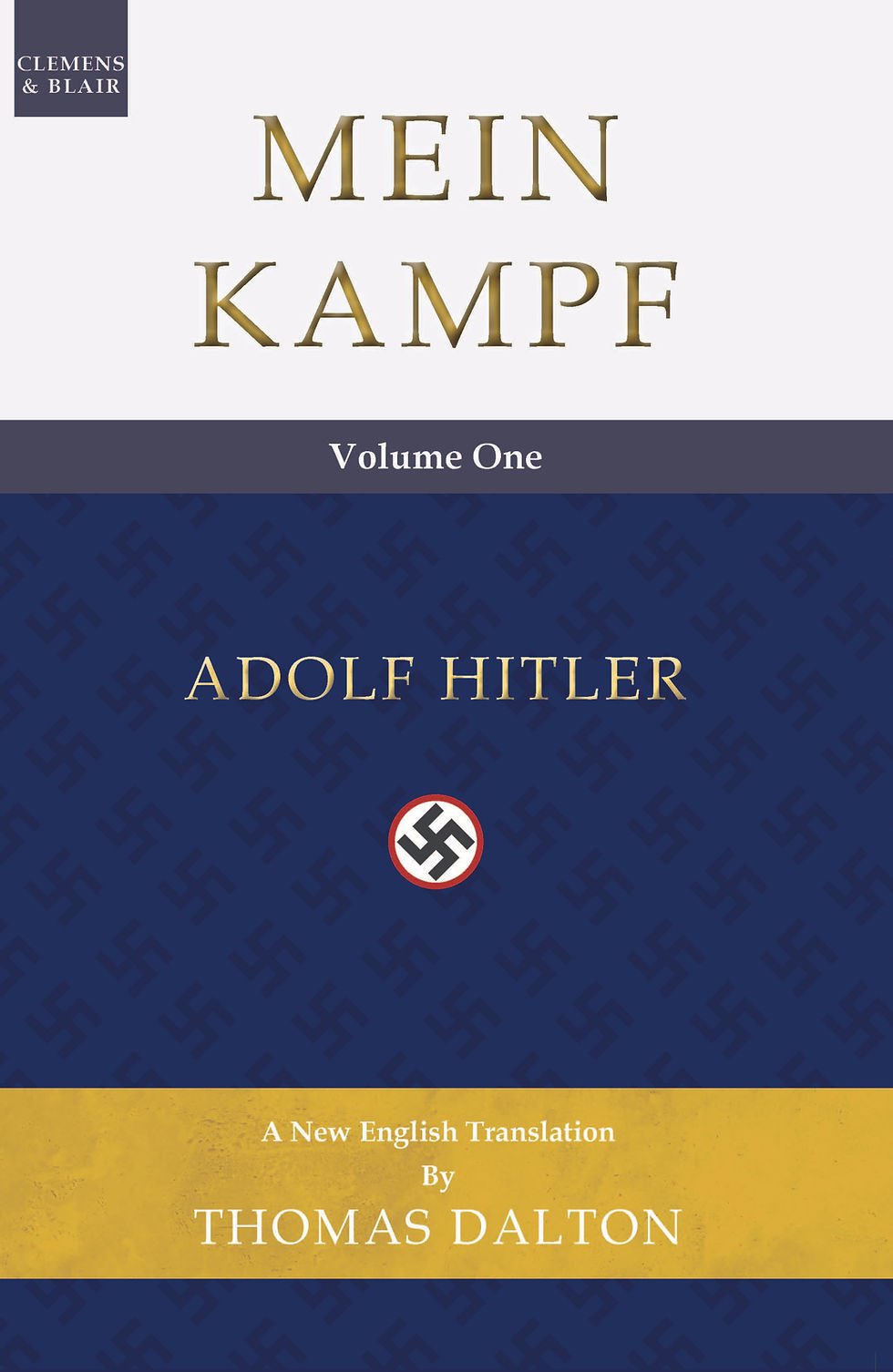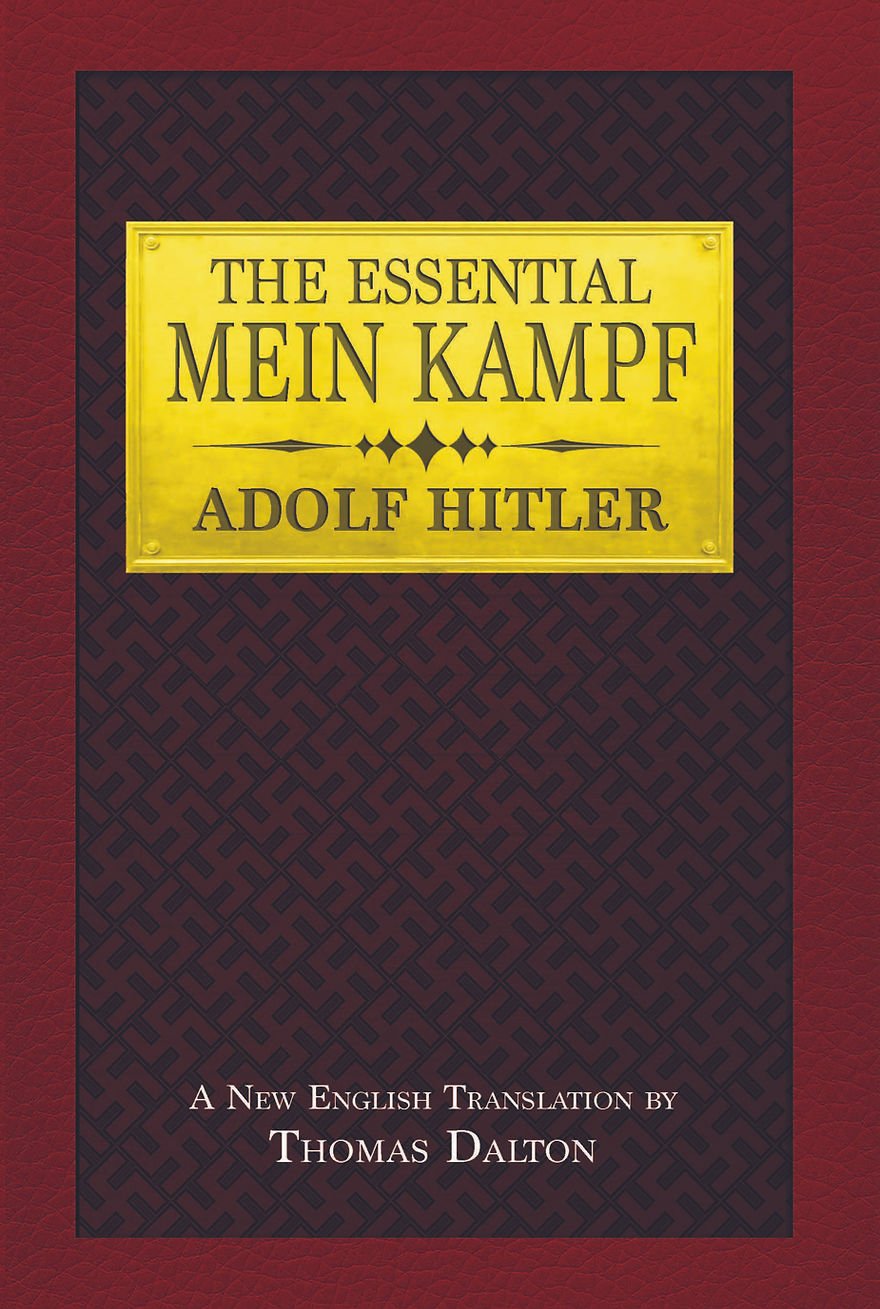 Image 1 of
Image 1 of


Mein Kampf by Adolf Hitler (Volume 1)
"Mein Kampf," authored by Adolf Hitler during his imprisonment in the early 1920s, serves as both a manifesto and a political autobiography. Written in Landsberg Prison following his failed coup known as the Beer Hall Putsch, the book outlines Hitler's ideology, including his fervent nationalism and anti-Semitic beliefs. It articulates his vision for Germany’s future, advocating for the unification of all German-speaking peoples and the establishment of a racially pure state.
The text played a pivotal role in the rise of the National Socialist Party, providing a foundational narrative that appealed to disillusioned Germans following World War I. By articulating grievances against the Treaty of Versailles and promoting extremist ideas, "Mein Kampf" became a central text for National Socialist ideology, galvanizing support and paving the way for Hitler’s ascent to power in the 1930s.
The Dalton translation of Mein Kampf, by Thomas Dalton, is known for being more faithful to the original German tone, style, and intent than earlier English versions—particularly the widely circulated Murphy translation, which many scholars criticize for censorship, paraphrasing, and omission. Dalton aimed to provide a literal and unfiltered rendering of Hitler's words, preserving his rhetoric and ideological emphasis without softening or editorializing. This version also includes extensive footnotes and commentary, offering historical context and clarifying ambiguities, making it especially useful for readers who want to study Mein Kampf from a critical or academic perspective.
This is Volume 1 of 2.
Print Length: 376 Pages
"Mein Kampf," authored by Adolf Hitler during his imprisonment in the early 1920s, serves as both a manifesto and a political autobiography. Written in Landsberg Prison following his failed coup known as the Beer Hall Putsch, the book outlines Hitler's ideology, including his fervent nationalism and anti-Semitic beliefs. It articulates his vision for Germany’s future, advocating for the unification of all German-speaking peoples and the establishment of a racially pure state.
The text played a pivotal role in the rise of the National Socialist Party, providing a foundational narrative that appealed to disillusioned Germans following World War I. By articulating grievances against the Treaty of Versailles and promoting extremist ideas, "Mein Kampf" became a central text for National Socialist ideology, galvanizing support and paving the way for Hitler’s ascent to power in the 1930s.
The Dalton translation of Mein Kampf, by Thomas Dalton, is known for being more faithful to the original German tone, style, and intent than earlier English versions—particularly the widely circulated Murphy translation, which many scholars criticize for censorship, paraphrasing, and omission. Dalton aimed to provide a literal and unfiltered rendering of Hitler's words, preserving his rhetoric and ideological emphasis without softening or editorializing. This version also includes extensive footnotes and commentary, offering historical context and clarifying ambiguities, making it especially useful for readers who want to study Mein Kampf from a critical or academic perspective.
This is Volume 1 of 2.
Print Length: 376 Pages
"Mein Kampf," authored by Adolf Hitler during his imprisonment in the early 1920s, serves as both a manifesto and a political autobiography. Written in Landsberg Prison following his failed coup known as the Beer Hall Putsch, the book outlines Hitler's ideology, including his fervent nationalism and anti-Semitic beliefs. It articulates his vision for Germany’s future, advocating for the unification of all German-speaking peoples and the establishment of a racially pure state.
The text played a pivotal role in the rise of the National Socialist Party, providing a foundational narrative that appealed to disillusioned Germans following World War I. By articulating grievances against the Treaty of Versailles and promoting extremist ideas, "Mein Kampf" became a central text for National Socialist ideology, galvanizing support and paving the way for Hitler’s ascent to power in the 1930s.
The Dalton translation of Mein Kampf, by Thomas Dalton, is known for being more faithful to the original German tone, style, and intent than earlier English versions—particularly the widely circulated Murphy translation, which many scholars criticize for censorship, paraphrasing, and omission. Dalton aimed to provide a literal and unfiltered rendering of Hitler's words, preserving his rhetoric and ideological emphasis without softening or editorializing. This version also includes extensive footnotes and commentary, offering historical context and clarifying ambiguities, making it especially useful for readers who want to study Mein Kampf from a critical or academic perspective.
This is Volume 1 of 2.
Print Length: 376 Pages





